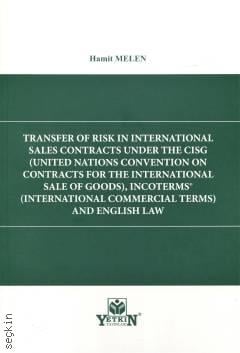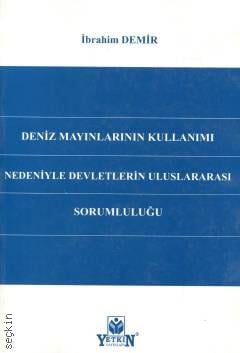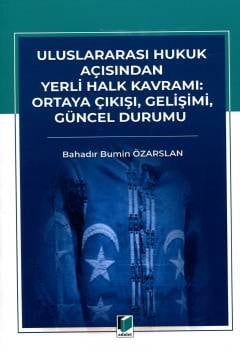>
Hukuk Kitapları>
Ticaret Hukuku>
Dış Ticaret Hukuku>
Transfer Of Risk İn International
Sales Contracts Under The CİGS,
Incoterms® And English Law

Transfer Of Risk İn International Sales Contracts Under The CİGS, Incoterms® And English Law
(United Nations Convention On Contracts For The International Sale Of Goods) / (Internatıonal Commercıal Terms)
1. Baskı,
Eylül 2021
Kitabın Detayları
Dili:
İngilizce
Ebat:
16x24
Sayfa Sayısı:
83
Kitabın Fiyatı:
250,00₺
Temin süresi 2-3 gündür.
Kitabın Açıklaması
İn the international sale of goods risk is an important concept that should not be underestimated. This is because the transfer of the sold goods from the buyer to the seller does not involve a short and easy process. During this process, the goods could be damagedlost. Despite the contract of sale, the parties may disagree who will bear the risk when the goods are lostdamaged. Moreover, in the international sale of goods the transition of risk differs in different legal systems. it is therefore important to fırst understand what the risk is and then determine how and when it passes to the buyer in the legal systems involved. Besides, there is benefıt in examining whether the obligations of the parties arising from the sales contract affect the transfer of risk. Knowing how risk is passed can prevent disputes in international sales law.
This paper will examine in detail the passage of risk in international goods sales under CISG, Incoterms® and English law. First, a general defınition of the risk will be offered, and general information will be given about how it transfers to the buyer. Then the concept of risk will be examined, fırst under CISG and then under the international commercial terms issued by the ICC, and how it is incorporated in international sales contracts will be discussed. Since English law applies SGA 1979 to international sales, how risk passes will also be examined under that act. Finally I examine the consequences of the transition of risk in these three legal systems, and the convenience and difficulties involved.
Kitabın Konu Başlıkları

The Concept Of Transfer Of Risk

Transfer Of Risk Under The Incoterms® And CISG

Transfer Of Risk İn English Law

Conclusion
Kitapla İlgili Kategoriler
Yorumlar
Kitabın Fiyatı:
250,00₺
Temin süresi 2-3 gündür.
Bu kitaplar da ilginizi çekebilir
Uluslararası Hukuk Açısından Yerli Halk Kavramı: Ortaya Çıkışı, Gelişimi, Güncel Durumu
Bahadır Bumin Özarslan
Hakkımızda
|
Uluslararası Yayınevi Belgesi|
Kaynakça Dosyası|
Kişisel Verilerin Korunması |
Üyelik|
Siparişlerim|
İade Politikası|
İletişim


